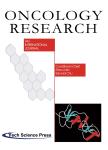The role of cholesterol metabolism in lung cancer
作者机构:Department of Thoracic Oncology and State Key Laboratory of BiotherapyCancer CenterWest China HospitalSichuan UniversityChengdu610041China West China School of MedicineSichuan UniversityChengdu610041China Department of Postgraduate StudentsWest China School of MedicineChengdu610041China Department of BiotherapyCancer CenterWest China HospitalSichuan UniversityChengdu610041China
出 版 物:《Oncology Research》 (肿瘤学研究(英文))
年 卷 期:2024年第32卷第10期
页 面:1613-1621页
核心收录:
学科分类:1002[医学-临床医学] 100214[医学-肿瘤学] 10[医学]
基 金:Cancer Psychology and Health Management Committee of the Sichuan Cancer Society
主 题:Cholesterol metabolism Lung cancer Immune cells Targeted strategies
摘 要:Elevated serum cholesterol metabolism is associated with a reduced risk of lung *** cholesterol metabolism is evident in both lung cancer patients and tumor *** tumor cell cholesterol uptake or biosynthesis pathways,through the modulation of receptors and enzymes such as liver X receptor and sterolregulatory element binding protein 2,effectively restrains lung tumor ***,promoting cholesterol excretion yields comparable *** metabolites,including oxysterols and isoprenoids,play a crucial role in regulating cholesterol metabolism within tumor cells,consequently impacting cancer *** lung cancer patients,both the cholesterol levels in the tumor microenvironment and within tumor cells significantly influence cell growth,proliferation,and *** effects of cholesterol metabolism are further mediated by the reprogramming of immune cells such as T cells,B cells,macrophages,myeloid-derived suppressor cells,among *** research is investigating drugs targeting cholesterol metabolism for clinical ***,targeting the cholesterol biosynthesis pathway,are widely employed in lung cancer treatment,either as standalone agents or in combination with other ***,drugs focusing on cholesterol transportation have shown promise as effective therapies for lung *** this review,we summarized current research regarding the rule of cholesterol metabolism and therapeutic advances in lung cancer.



